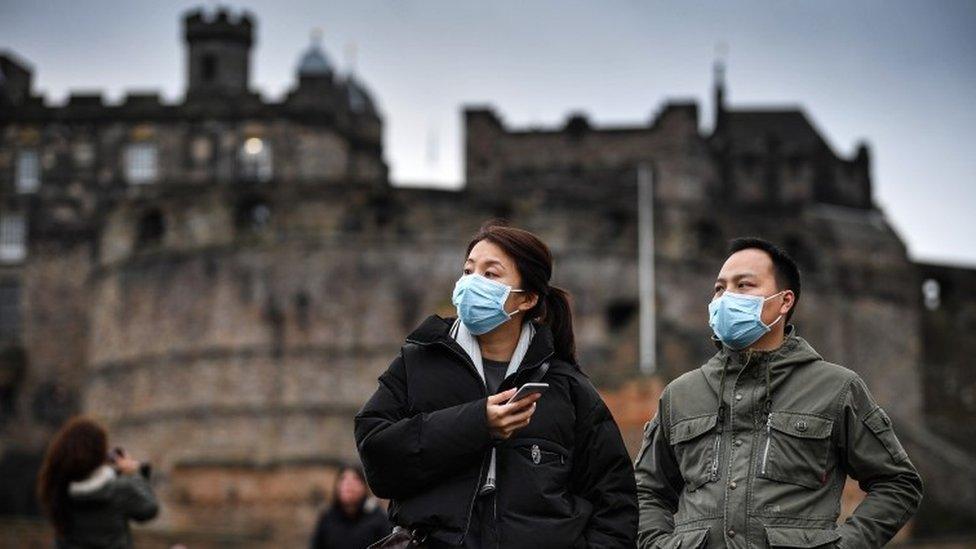Covid-19: New Jobs Support Scheme 'will not stop mass redundancies'
- Published
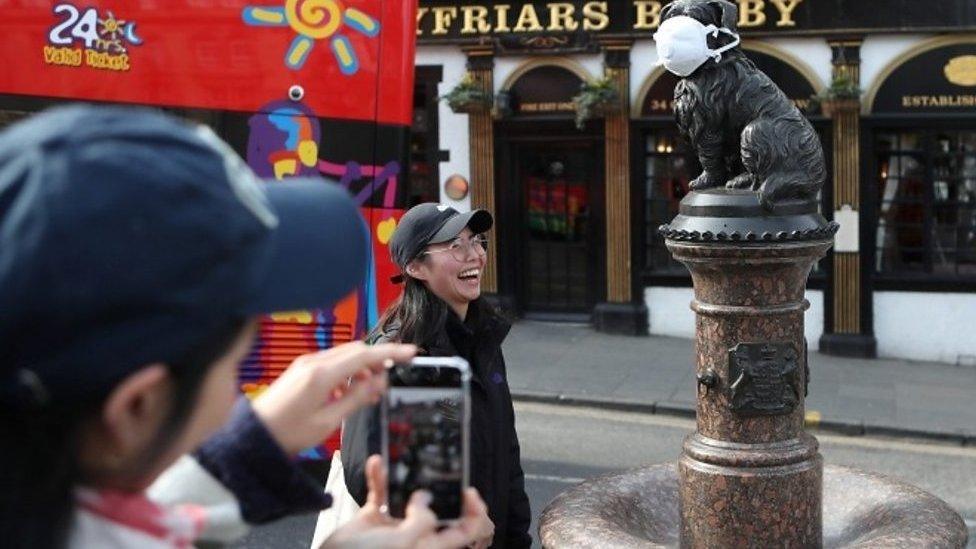
Tourism plays an important part in Scotland's economy
The new Jobs Support Scheme announced by the chancellor will fail to prevent mass redundancies, the Scottish tourism sector has warned.
Rishi Sunak said the government would top up the wages of workers in "viable jobs", with staff getting up to 77% of their normal salaries for six months.
He also said VAT for the hospitality and tourism sector would remain at 5% until 31 March next year.
But the Scottish Tourism Alliance (STA) said there was not enough work.
Chief executive Marc Crothall said: "Employers cannot afford to pay staff when there is no work, so we can still expect to see mass redundancies."
He said the measures fell "some way short" of what was urgently needed to rescue Scotland's tourism industry from "a perilous situation".
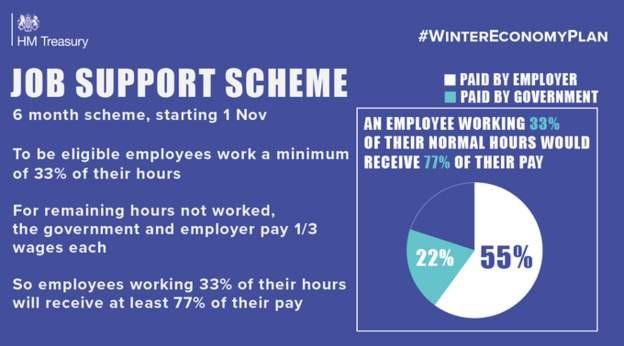
He said: "The Jobs Support Scheme will only help businesses which have sufficient demand to pay these minimum hours; the majority of tourism businesses simply will not be able to do so as their businesses are either closed due to legislation or restrictions.
"This continues to create pressure on the payroll at a time when consumer confidence and demand for the services which the tourism sector offers is at an all-time low, coupled with the increased restrictions in place."
Mr Crothall said the extension of the current rate of VAT at 5% until March 2021 would have a marginal effect on the industry, given that so many businesses would be forced to make redundancies and close their doors for good.
"The reality we must all face now is that within the coming days and weeks businesses owners will lose their livelihoods, thousands will lose their income and the effects on the economy and people's lives will be nothing short of devastating," he added.
Citizens Advice Scotland said the scheme, which begins on 1 November, would have to be targeted effectively to prevent a "tidal wave of redundancies" this winter.

'Tourism is suffering'
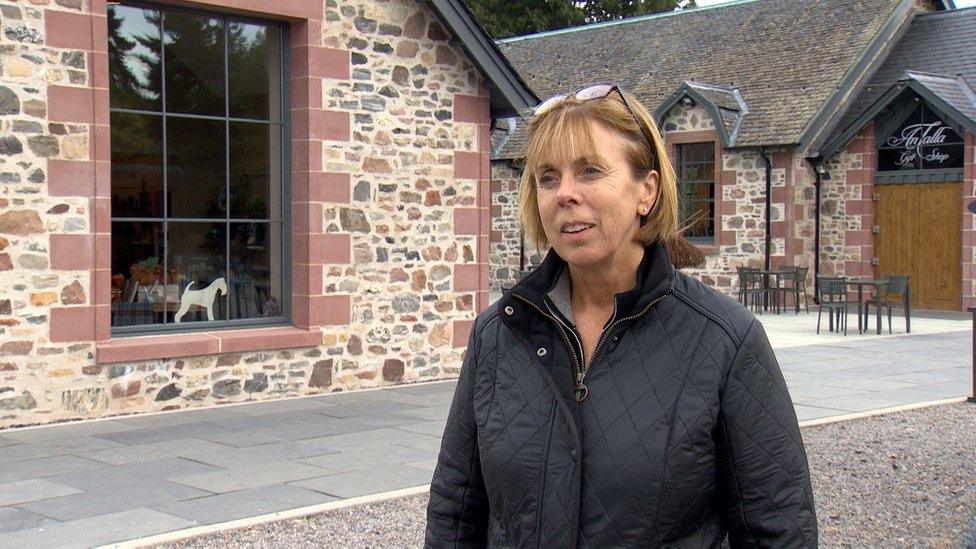
Freda Newton, who runs Loch Ness by Jacobite Cruises, welcomed the VAT cut extension but said: "We've missed the whole point about how much tourism is suffering in general. Tourism and hospitality I think are the worst affected industries in the world probably and there has been no specific help for that."
She said that in August her company was 98% down on its turnover in one week.
"We are really an industry that's struggling just to survive," she added. "These businesses in tourism and hospitality might not even be here in November."
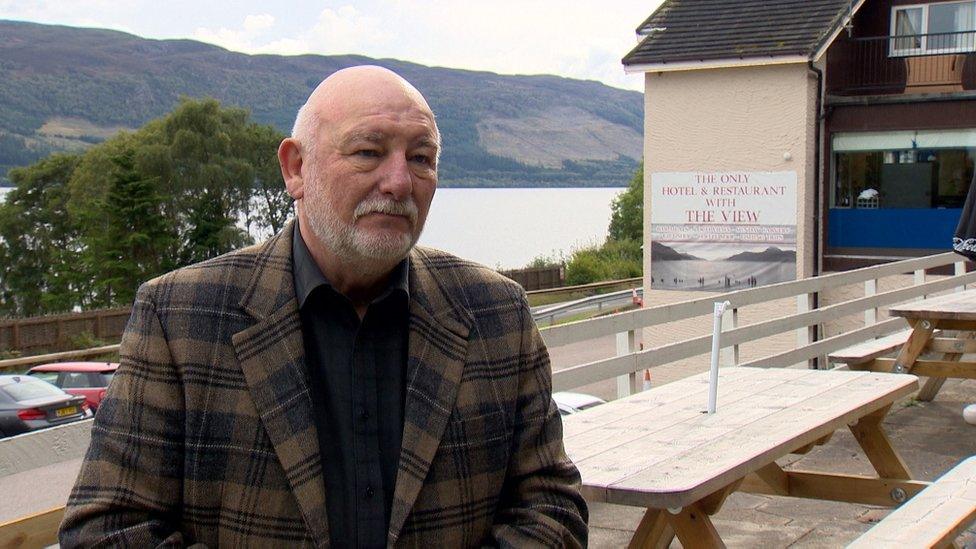
Willie Cameron, who runs Loch Ness Marketing, and has a hotel on the shores of Loch Ness, said the new scheme would "help a little bit" but it was going to be a "serious struggle" for businesses in the hospitality and tourism sector.
"We'll possibly be able to keep more people in employment but in the long term I think it's going to generate more of a casual employment, probably zero-hours contracts," he said.
He added that it was going to be "very difficult" due to current restrictions on numbers of people in groups and the fact that foreign visitors were not coming to Scotland.

However, CBI Scotland said the "bold steps" from the Treasury would save hundreds of viable jobs this winter.
Its director Tracy Black said: "It is right to target help on jobs with a future, but can only be part-time while demand remains flat. This is how skills and jobs can be preserved to enable a fast recovery.
"Wage support, tax deferrals and help for the self-employed will reduce the scarring effect of unnecessary job losses as the UK tackles the virus. Further business rates relief should remain on the table."
She added: "The chancellor has listened to evidence from business and unions, acting decisively. It is this spirit of agility and collaboration that will help make 2021 a year of growth and renewal."
Dr Liz Cameron, chief executive of Scottish Chambers of Commerce, broadly welcomed the new scheme which she said "should help save many from losing their jobs completely".
But she added: "Topping up wages can only ever be a sticking plaster. In Scotland we need a comprehensive plan focused on retraining and upskilling our workforce and investment in the creation of new jobs."
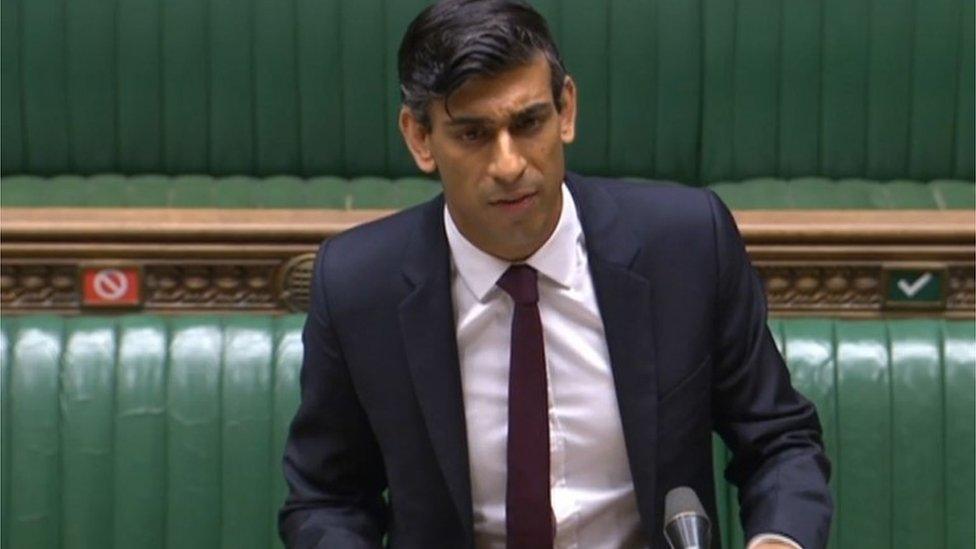
Rishi Sunak said the new scheme would start on 1 November
The new scheme, to replace the furlough scheme which ends next month, aims to stop mass job cuts after the government introduced new measures to tackle coronavirus.
Mr Sunak said the furlough scheme had to end as it was "fundamentally wrong" to keep people in unviable jobs.
The Scottish government's finance secretary Kate Forbes said: "Following our repeated calls for more action to protect jobs, I welcome some of what has been announced by the UK government.
"However, what the chancellor has set out today does not go far enough. With only five weeks to go until the end of the furlough scheme, businesses have already taken difficult decisions and now need greater certainty and more time to plan."
She said Scottish government analysis suggested that 61,000 jobs would be saved if the furlough scheme was extended.
"News of the VAT deferral and extension to the VAT cut for hospitality and tourism are positive steps, however these are two of the sectors hit hardest by this pandemic, and today's announcement doesn't give enough support for those sectors," she said.

'This is unlikely to be the last word on economic support'

Rishi Sunak may feel flattered by his political opponents' enthusiasm for extending the scheme he began and then extended. It was more generous and longer-lived than others had been demanding.
But the chancellor says now that a new phase of the health and economic crisis requires a new scheme. It's arguable whether this phase is that much different. And the scheme is one which won't bring Mr Sunak as much praise and admiration.
Those jobs that cannot sustain at least a third of normal working hours should not be supported, goes the argument. That's a blunt instrument for consigning many jobs to the scrapheap, and pushing people into new job search.
Some jobs are nearing the end of their useful roles. There is always such churn in the labour market.
Wildly unpredictable
But many tasks are rendered non-viable only while social distancing rules are in place. Those who work in theatres, music venues, nightclubs and conferences could readily come back when the rules are withdrawn, but they're not getting any support through this winter.
That may force further measures to support targeted sectors, as we have seen already with arts and culture. This is unlikely to be the last word on economic support. And if, as some suspect, infection controls have to be tightened further, so mitigating economic measures will also have to alter.
That uncertainty, and the unbudgeted commitment, is why it's near impossible to set a 2021-22 budget this winter. Rishi Sunak has the luxury of putting his plans off, postponing questions on paying the bills for all this, and borrowing to fill in the gaps next financial year.
The Scottish, Welsh and Northern Irish governments, as with local councils, don't have that luxury. They face the unenviable task of setting course for revenue and spending next year, when both sides of the ledger are wildly unpredictable.

The chancellor said that to qualify for the new scheme, employees would have to be working for at least a third of their normal hours.
Between them, the government and the employer will then cover part of their salary for the remaining hours not worked.
Mr Sunak said he was also extending the scheme for self-employment on "similar terms" to the existing job support scheme.

LOCKDOWN: Six months that changed our lives
NUMBERS: Four key figures to watch out for
ANSWERS TO YOUR QUESTIONS: Who can I meet, and where?

- Published24 September 2020

- Published23 September 2020
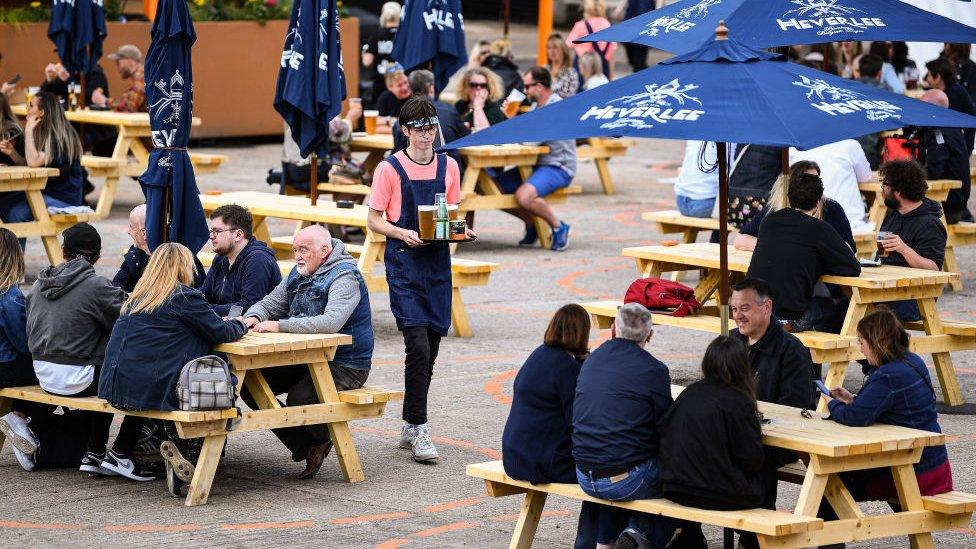
- Published3 September 2020

- Published22 July 2020

- Published21 June 2020
